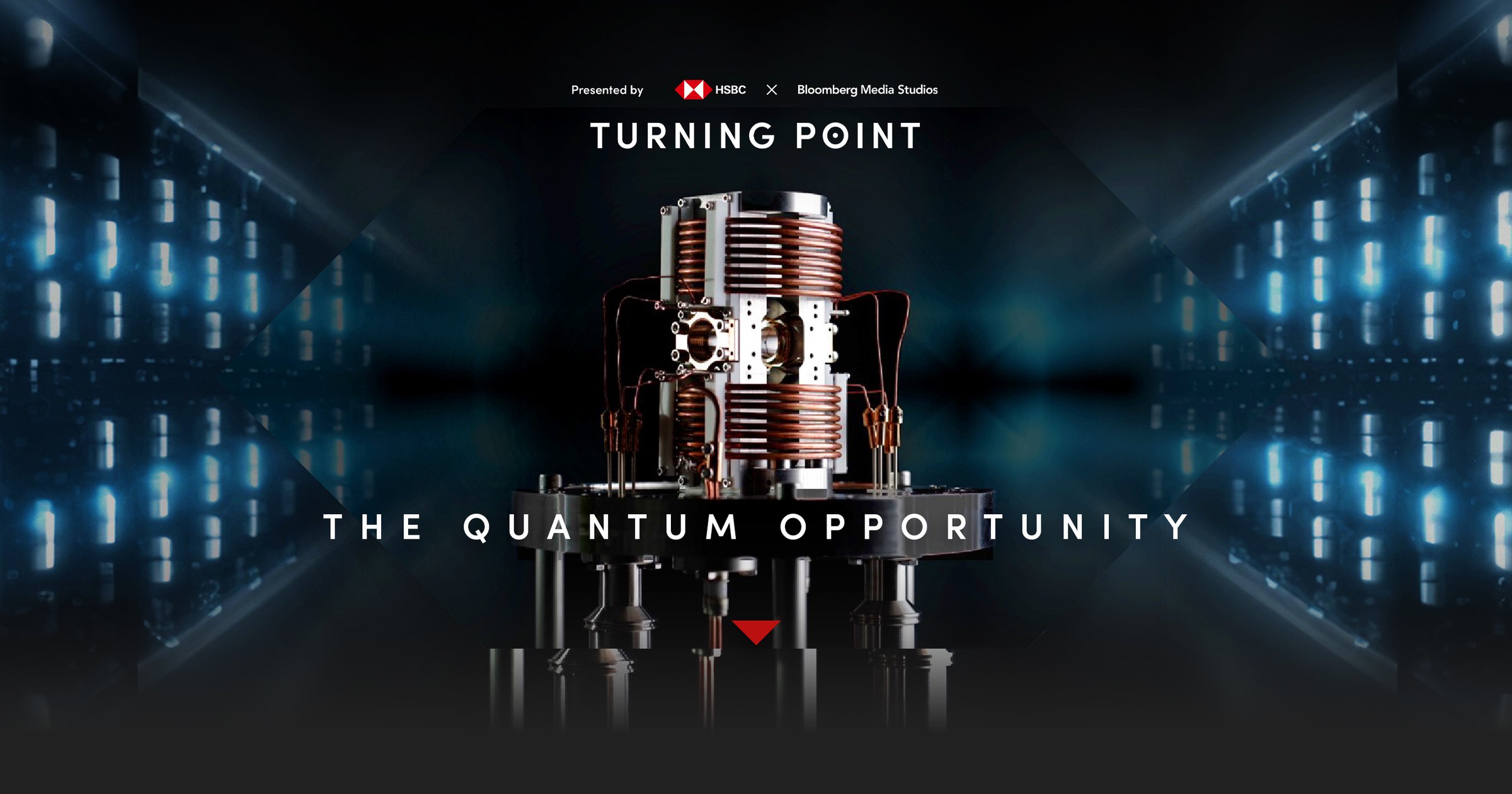
Turning Point: The Quantum Opportunity
The quantum era is here: calculations that would take the world’s most powerful supercomputer 47 years can now be solved in mere seconds on a quantum computer.
This dramatic acceleration in computing power is because quantum bits – or “qubits,” the fundamental units of a quantum computer – can process multiple outcomes at once, instead of one by one.
Qubits are not easy to create. While single atoms are ideal building blocks for qubits, the challenge is capturing and controlling them.

In 2001, physicist Georges-Olivier Reymond was the first to trap single atoms with optical tweezers through his Ph.D. research. Yet he could not see the potential of quantum computing at the time.
“I was doing this research because it was exciting and it was great physics, but honestly, quantum computing seemed a very, very far way off. Back then, it was still science fiction. Everything was classical. Nothing was quantum. But the single atom was the real seed for this new field of quantum physics,” he says.
It took nearly 20 years, and a career as an engineer, for Reymond to be convinced that quantum technology was finally ready to leave the lab. Together with former colleagues from the Institut d’Optique graduate engineering school in France, Reymond founded Pasqal in March 2019 to focus on industrial quantum applications.
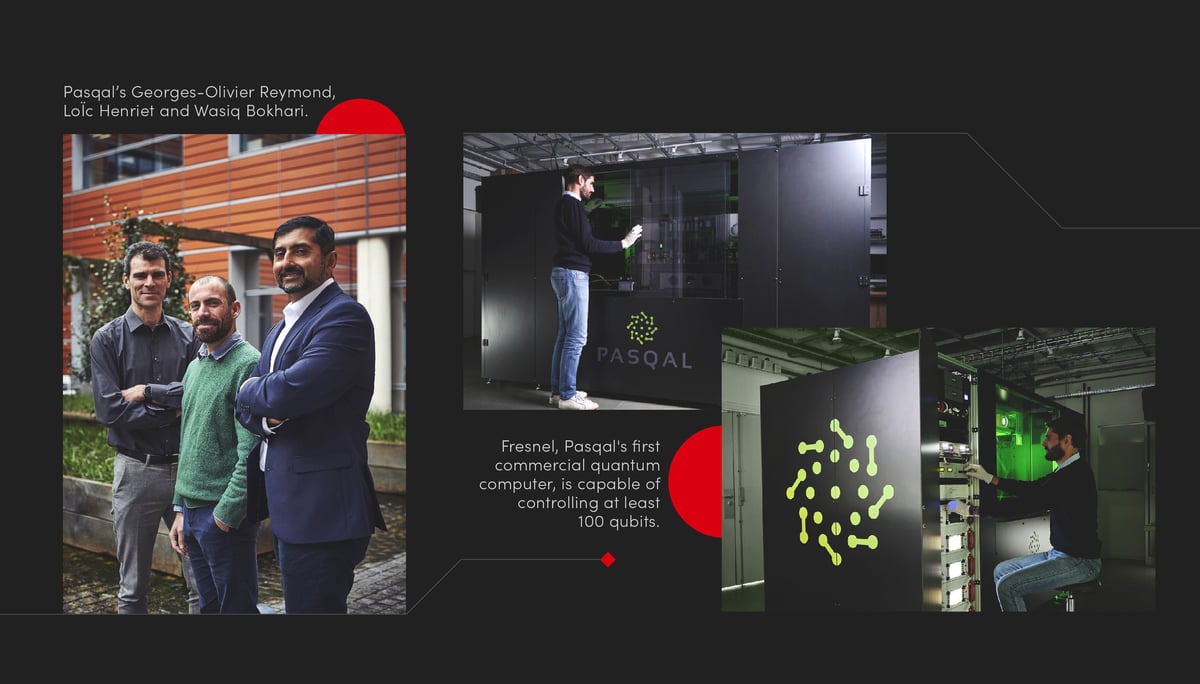

“We decided from the start to build a reliable product that can be shipped to customers and monitored online, rather than copy-pasting the academic setup,” he says.
That decision was quickly put to the test when French electricity company EDF approached the team with a challenging use case: optimizing the charging of the country’s future fleet of 30 million electrical vehicles. The Pasqal team worked from scratch, successfully developing and testing algorithms to avert the breakdown of the electrical grid that would occur if all cars were charged at the same time.
Pasqal has gone on to develop quantum solutions for a number of use cases that include optimizing air traffic routes, accelerating pharmaceutical development and assessing credit risks. Each of these computational challenges would have taken classical computers years, if not decades, to solve.

Although many of Pasqal’s partners are already aware of the revolutionary impact of quantum computing, the team’s day-to-day challenge is explaining that the shift is already under way.
“We have the hardware. We have the first applications. And to our best estimation, we are one or two years away from a real quantum advantage, where a quantum computer can solve problems beyond the reach of even the most powerful classical computers,” says Reymond.
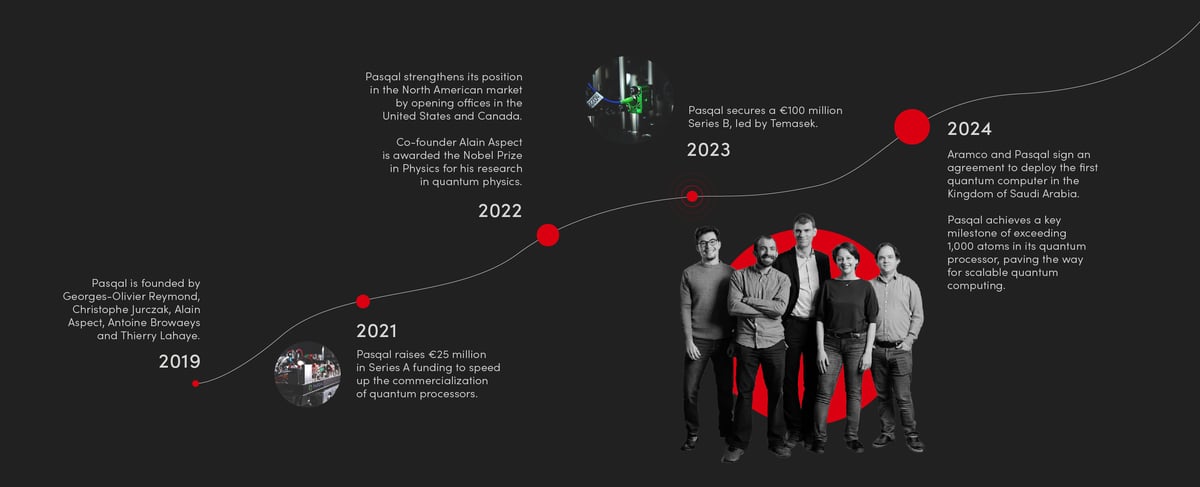
Pasqal’s agreement with gas giant Aramco to install Saudi Arabia’s first quantum computer in 2025 is especially significant in closing the gap between companies already engaging with quantum and those choosing to wait.
“Aramco’s investment is a strong signal to the private market,” says Reymond. “It's like an endorsement of our initial vision in saying, yes, the technology is good enough. Let's take it out of the lab.”

In an industry where investment, competition and politics are heating up, Pasqal has learned to never rest on its laurels. “As soon as you have a great result, you cannot sleep on it. The quantum race is very competitive, so you have to stay committed to the next breakthrough. We never stop,” says Reymond.
Getting global investment company Temasek to come on board, despite its earlier investment in a competitor, was a milestone. After demonstrating its immediate and long-term roadmap, Pasqal secured Temasek as the lead investor for its €100 million Series B round in 2023 – its largest funding round to date.
Apart from funding, Pasqal has also used the power of networks to expand its technological capabilities. In collaboration with IBM, Pasqal is creating a hybrid ecosystem of classical supercomputers and quantum computers. “We see complementarity between Pasqal's technology and IBM's. By joining forces, we can extend the portfolio of available applications, so customers don't have to bet on a single technology, but have easier access to the benefits of quantum collaboration,” says Reymond.
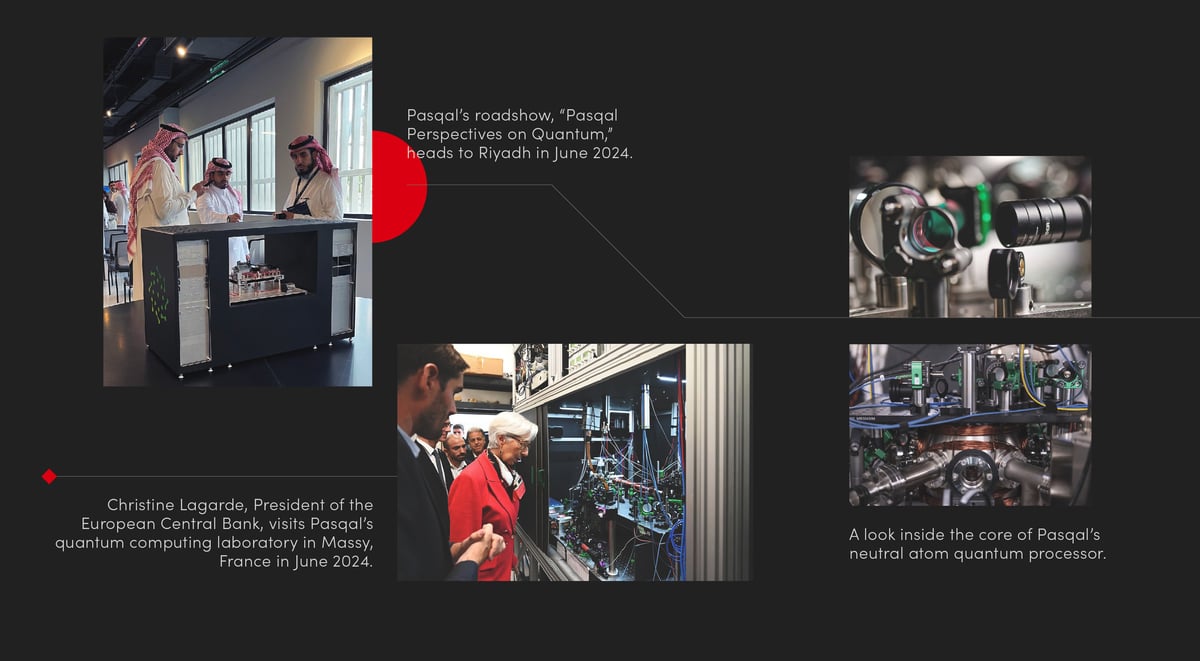
In advancing quantum innovation and reducing barriers to adoption, Pasqal prioritizes collaboration with users as well as industry peers. The team’s open-source Python library, for example, enables those without a quantum background to access and program quantum computers.
As Pasqal eyes the next challenge of developing more qubits with fewer errors, the team’s determination is buoyed by its progress so far.
“I will quote my co-founder, Alain Aspect, when he accepted the Nobel Prize for Physics in 2022: ‘When there is no fundamental impossibility, engineers find a path.’ Science demonstrates that there is no limitation. Innovation is finding the path,” says Reymond.
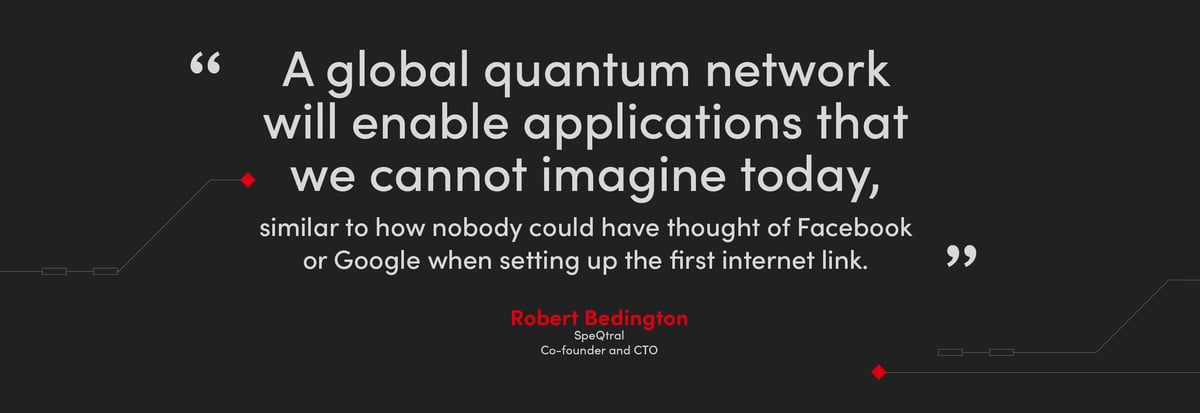
While Pasqal is building specific quantum use cases, another innovator is focusing on mitigating a looming universal threat: quantum decryption.
With their unparalleled computing power, quantum computers will soon be able to crack most of the world’s standard encryption systems. Malicious actors are already lying in wait, harvesting seemingly secure data so that in the near future, when quantum computers are available, these archives can be cracked.
Drawn to the challenge of building a foolproof, quantum-safe network, Lum Chune Yang and Robert Bedington, former colleagues at Singapore’s Centre for Quantum Technologies, co-founded SpeQtral in 2017.

From the beginning, SpeQtral had global ambitions, and saw its base in Singapore as the starting point for a global network of secure quantum keys.
“Once we have this quantum optical ground station in Singapore, any financial institution can be linked to that hub. Our plan is to start with major financial centers, including New York, London and Tokyo, and connect each of these partners with all the other partners,” says Lum.
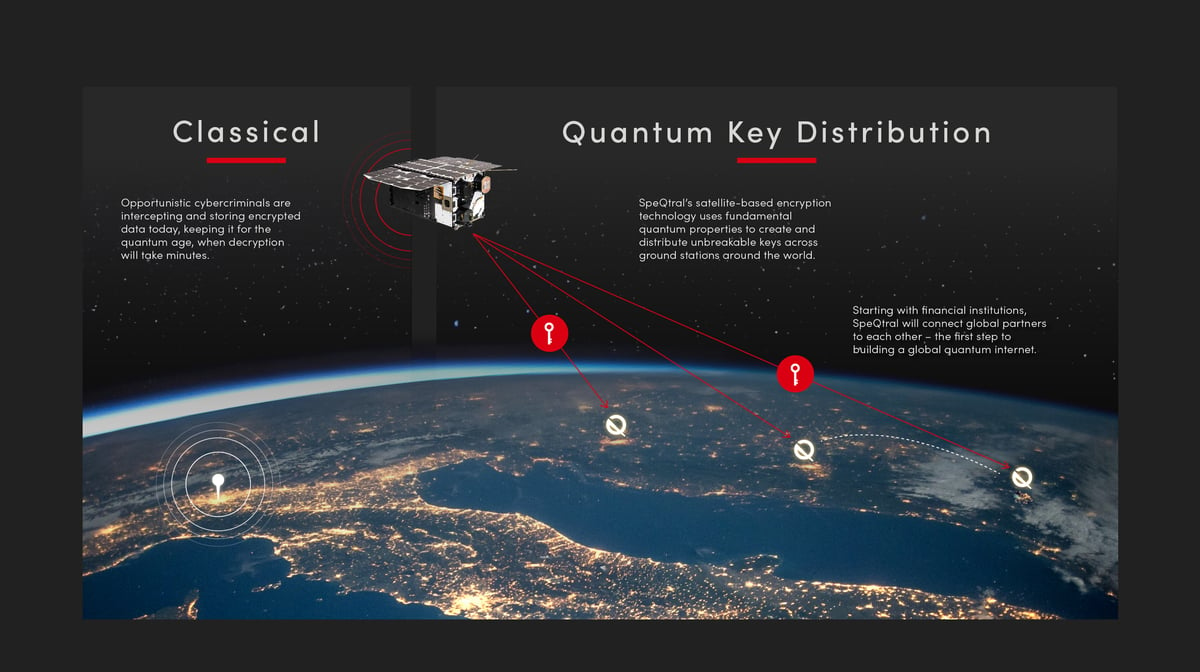
Building a quantum network requires capital – and SpeQtral’s first round of fundraising was challenging.
“In our early days, Singapore was not synonymous with deep tech,” recalls Lum. “Many potential investors carried with them the more well-known expectations of general tech: a minimum viable product, first customers and first revenues, rather than the technical milestones of deep tech in the early stages. We eventually raised $1.9 million in our seed round in 2019, led by Space Capital from the US, but it took us a long time."

The same perseverance led to a milestone technology demonstration that same year: the SpooQy-1 mission. Designed and built at the Centre for Quantum Technologies, work on SpooQy-1 began back in 2014 – and was Bedington’s first order of business upon moving to Singapore.
After years of planning, this shoebox-sized satellite was launched into low earth orbit from the International Space Station in 2019. Its success in generating quantum signals that withstand the harsh conditions of space showed the promise of using cost-effective nanosatellites to build a global quantum internet.
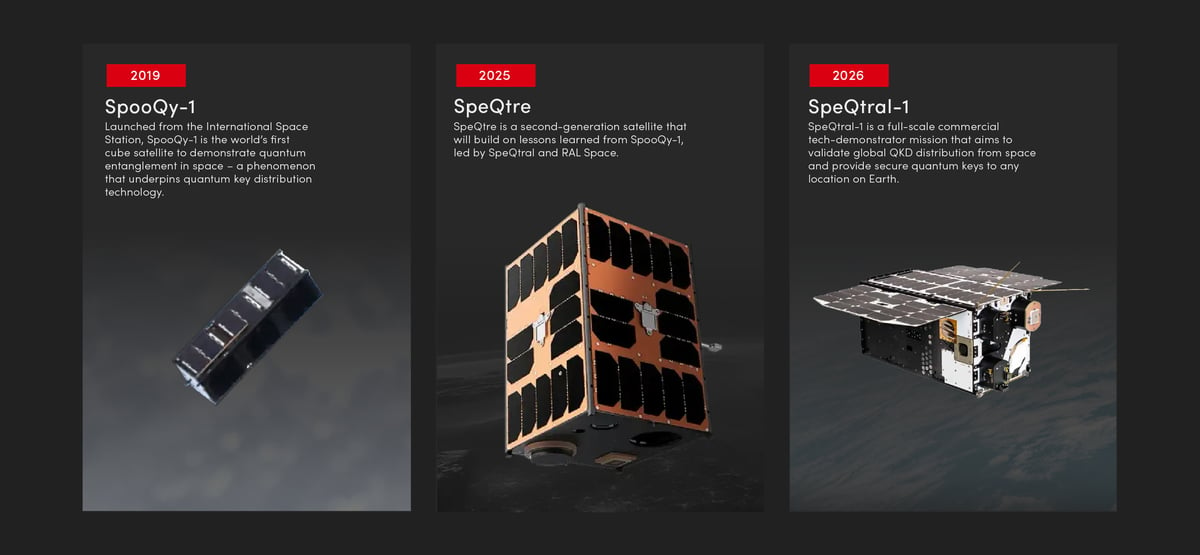
But SpeQtral’s momentum was quickly interrupted by the pandemic, when partnerships and fundraising ground to a halt. However, the team was determined to secure both.
Its second round of fundraising in 2021 catalyzed further government support in the form of Singapore’s Office for Space Technology & Industry, which unlocked crucial partnerships with the European Space Agency to establish one of the first satellite-based quantum-safe links between Singapore and Europe – a giant step toward SpeQtral’s goal of building a global quantum-safe network.
And in 2022, the team moved another step closer to its vision: passing the critical design review for its upcoming mission, SpeQtre. Born out of a partnership between the Centre for Quantum Technologies and RAL Space, the United Kingdom’s national space hub, SpeQtre exemplifies the long journey and global ecosystem of quantum key technology – and will use the lessons learned from SpooQy-1 to demonstrate secure space-to-ground quantum communications.

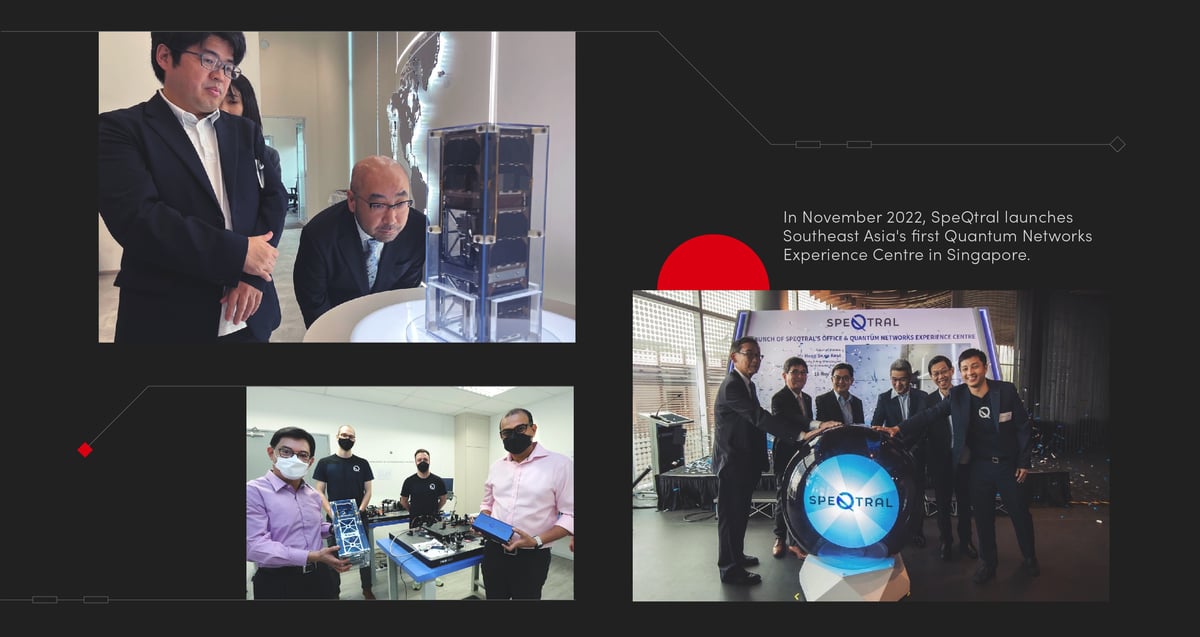
Even as SpeQtral inks wide-ranging memorandums of understanding with government and commercial partners, including Toshiba, Singapore government agencies and HSBC, Lum and Bedington know the journey is far from over. SpeQtral’s upcoming satellite missions will validate quantum key distribution across two continents, and bring quantum theory another step closer to reality. And more work remains in building wider understanding.
“The challenge today is that the gap between the experts and the broader industry is still very wide. Some leading industry players like HSBC have already done trials in quantum key distribution, but they are part of a very select group. Bridging the gap and getting more commercial players educated is still a challenge,” says Lum.
As the countdown to the quantum age begins, SpeQtral is already looking ahead to its next partnership. “Telcos are going to be involved because of fiber networks. Satellite players will also come in, and then there will be integration, standards and regulations,” says Bedington. “We’re entering hockey stick growth in quantum innovation.”

